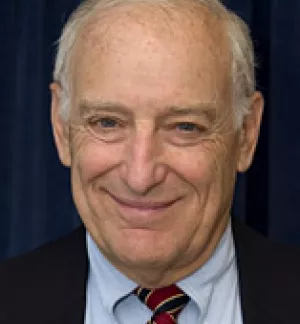This week's US raid in Somalia that killed Al Qaeda operatives removed dangers to the United States and its allies, but did little to bring progress to one of the least governed places in the world.
Eliminating Saleh Ali Nabhan, the alleged mastermind behind the 2002 attacks on Israelis in Kenya and possibly the US embassy bombings in 1998, is salutary.Nabhan was a leader of Al-Shabab, a fundamentalist Islamist youth movement of Somalis, which runs a large swath of southern Somalia and has ties to Al Qaeda.
Although the attack could deter new anti-American escapades in Somalia and East Africa, it did nothing to weaken al-Shabab's hegemony in southern Somalia. Nor did it strengthen Somalia's nominal overall government led by the American-backed Sheik Sharif Sheik Ahmed in Mogadishu.
The United States has been backing his beleaguered government with large shipments of arms and has been attempting to deter Eritrean and Gulf Arab funding for al-Shabab. But the struggle for Somalia is much more than a military one. In much of central and southern Somalia there has been no central government, only clan and sub-clan based warlords, since 1993. Al-Shabab, like the Union of Islamic Courts in 2006 and 2007, offers security and plausible forms of Islamist-inspired harsh governance in critical sectors of the country. For ordinary Somalis, however much they chafe at the Islamist restrictions, at least al-Shabab provides some kind of stability.
Sheik Ahmed's government offers little security and governance, and itself depends on protection from an African peacekeeping force of Ugandans and Burundians. Sheik Ahmed only controls parts of Mogadishu and a few smaller centers. If the African Union and the UN, backed by US funding, could supply thousands of additional peacekeepers, perhaps the Sheik Ahmed administration could weaken al-Shabab's hold. But more troops are not likely anytime soon. Without them, the United States. will achieve little in Somalia until it can help win popular support and legitimacy for Sheik Ahmed - a tall and improbable order.
Diminishing Islamist and Al Qaeda franchise influence in Somalia will only come by growing the influence of secular, non-governmental (if Muslim) Somalis, by finding a way to restart a state school and health care system, and by assisting the drought-prone Somalis with their water (and agricultural and grazing) requirements.
In other countries, the United States would extend aid to a government and to NGOs. But Somalia does not work that way. The United States, operating from neighboring Kenya, will have to find clever ways to support new leadership initiatives - another tall order. To do so, it might have to break its connection to the weak current government. It certainly has to distance itself from Ethiopian aspirations in the region.
The Obama administration would do well to begin thinking about Somalia as a post-conflict arena, needing reconstruction and new incentives, rather than an Al Qaeda outpost run from Pakistan by Osama bin Laden. It is not such as outpost, even though a handful of persons like Saleh Nabhan will continue to agitate in or pass through the badlands of Somalia and work closely with al-Shabab.
One other bold diplomatic initiative would make a difference. To the north of the warlord- and al-Shabab-run zones of Somalia is Somaliland, which has run itself sensibly and mostly democratically since 1991. Its leadership is having problems, but for many years it delivered positive political goods to its citizens in a manner that has never occurred in the rest of Somalia. No nation recognizes Somaliland even though its neighbors do business there and the United States. has long kept an official eye on it.
The United States, the West, and Africa should recognize Somaliland officially. Doing so would provide an incentive for the rest of Somalia to begin moving toward good rather than bad governance. The Somaliland example provides a path that could now entice Somalis to forsake their battles in favor of a peaceful future.
The full article can also be found on the Boston Globe's website: http://www.boston.com/bostonglobe/
Rotberg, Robert. “The US Must Help Rebuild Somalia.” The Boston Globe, September 19, 2009





